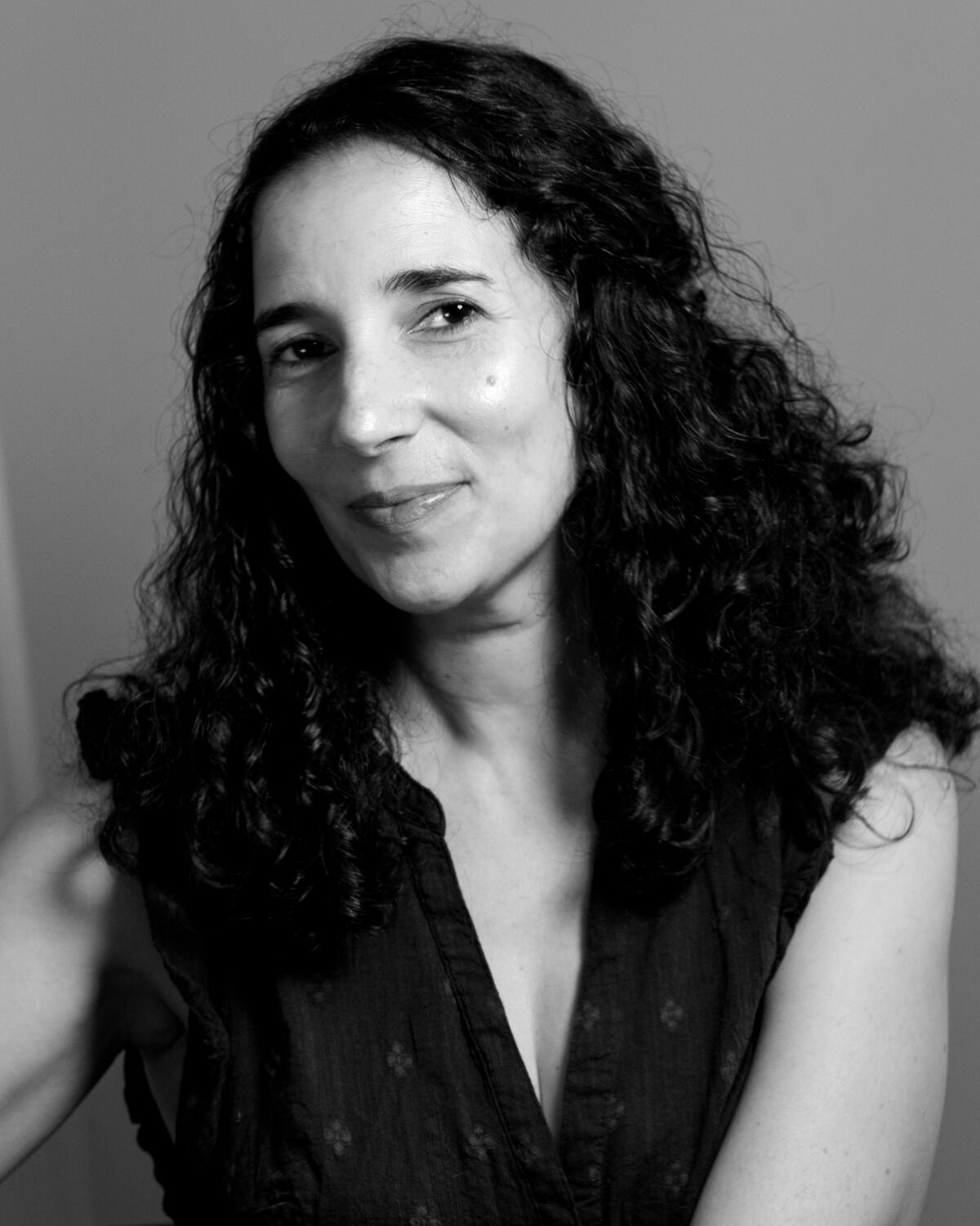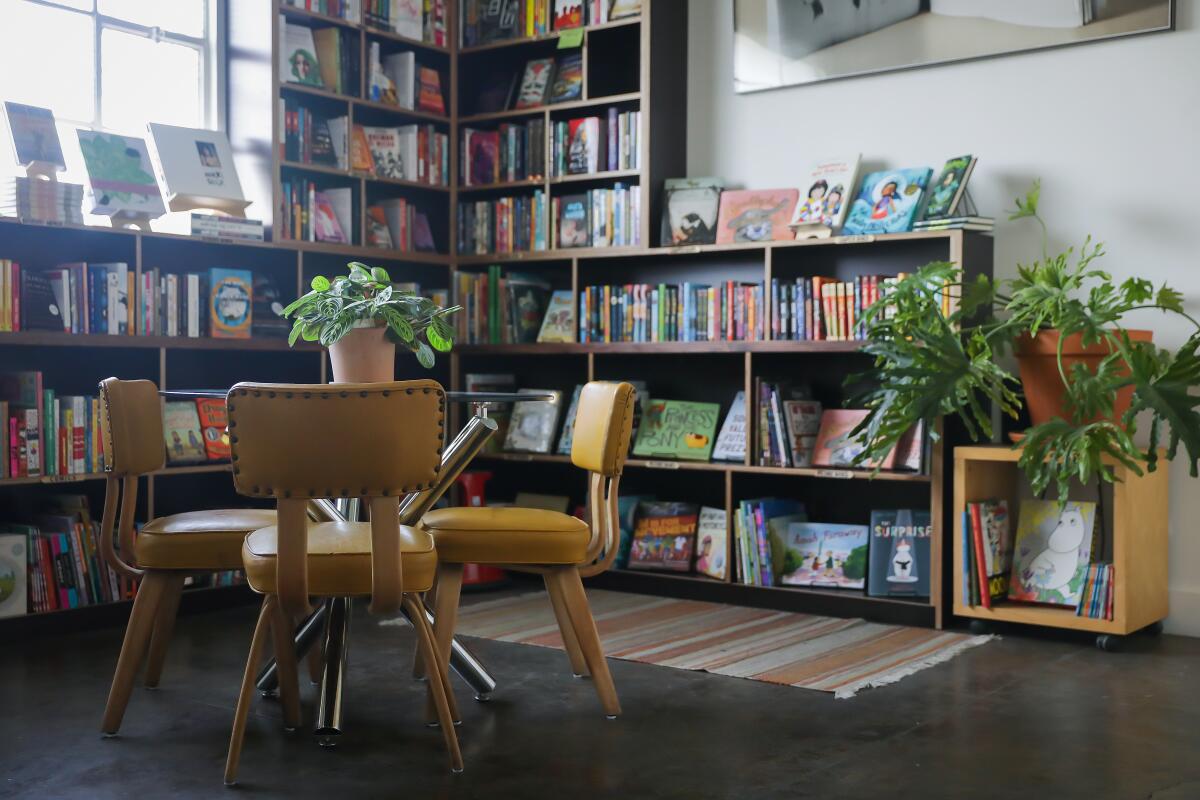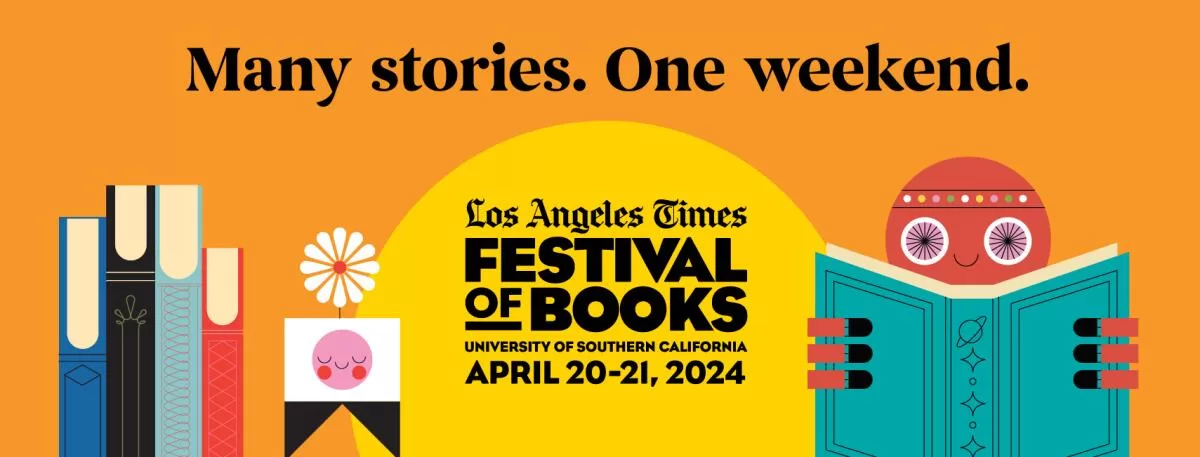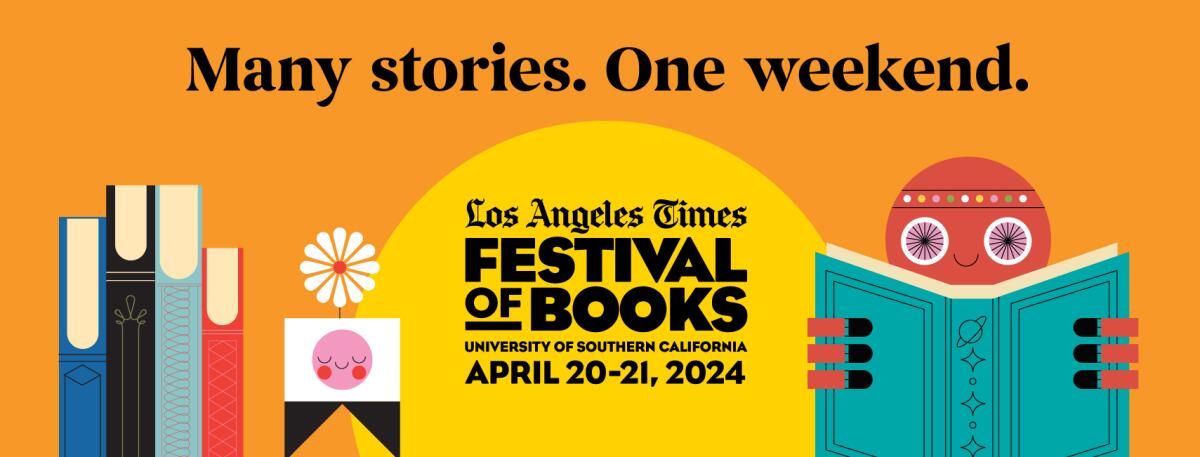For the next few editions of the newsletter, you’ll be hearing directly from authors. Next up …
I’m Zan Romanoff, an author, cultural critic and podcaster. (Who isn’t, these days?)
The first time I attended the L.A. Times Festival of Books, I was in my mid-20s. I was unemployed, living at home after a long stint on the East Coast, and working on what I hoped would be my first novel.
It was hot. It’s always hot on festival weekend. I traipsed all over USC’s campus in impractical shoes, frequently getting lost and raising plenty of blisters in the process. I eventually arrived at the blessedly air-conditioned classrooms where I could listen to authors I admired talk about their writing rituals and editorial processes.
You’re reading Book Club
An exclusive look at what we’re reading, book club events and our latest author interviews.
You may occasionally receive promotional content from the Los Angeles Times.
I had always wanted to write, but I never knew how to talk about it. Writing seemed like a secret, magic thing, and I worried that I would sap my powers if I tried to examine them. L.A.’s own Eve Babitz, of course, has the perfect anecdote about this. In her novel “Sex and Rage,” one character looks at another’s painting and asks, of her color choices, “Is that the blue you’re using?” In response, she stops painting all together. She can’t stop questioning herself. I feared the same thing happening to me.
But listening to other artists talk was demystifying. Novels take seemingly forever to write. And it can’t be magic the whole time; sometimes it is just work. Those author conversations helped me think about how to actually do all of that work, even on days when I wasn’t gripped by divine inspiration. I learned about techniques like reverse-outlining, (where you turn a full draft into an outline so that you can see its structural skeleton). But mostly, I learned that it was OK to be frustrated and anxious. That it was, in fact, unavoidable.
Five years after I attended the Festival of Books for the first time, I found myself on a panel side by side with some of the same writers I had admired years before. I’ve been back every year since, moderating panels and speaking on them.
I’m looking forward to so much of what’s in store for the 2024 Festival of Books. Thousands of curious, creative people will gather to think and talk about writing and reading, magic and work. It’s a gift every time.
The full book festival lineup is now published. You can find it here.
And here are some of the panels and conversations I am most excited about.
The L.A. Times Festival of Books is coming!
Arts & Culture: A Conversation on the Immigrant Experience, presented by the Pulitzer Prizes
Sunday, April 21, 10:30 a.m.
Featuring Viet Thanh Nguyen, Hector Tobar, Sanaz Toossi
Moderated by Marjorie Miller
Writing in Public
Saturday, April 20, 10:30 a.m.
S. Geeley Mudd 123
Featuring Hari Kunzru and Maggie Nelson
Moderated by David Ulin
Shining Stars of Romance: Navigating Success in the Genre
Sunday, April 21, 3 p.m.
Town and Gown
Featuring Xio Axelrod, Christina Lauren, Tia Williams
Moderated by Elissa Sussman
Does A.I. Dream of Electric Sheep? AI and Technology in Contemporary Society
Saturday, April 20, 2 p.m.
Taper Hall 101
Featuring Malcolm Harris and Brian Merchant
Moderated by Joanne McNeil
California State of Mind: Publishing in the West
Saturday, April 20, 3 p.m.
Albert and Dana Broccoli Theater
Featuring Kate Gale, Chris Heiser, Michelle Tea, Steve Wasserman
Moderated by Laura Cogan
The Week(s) in Books

In Emily Raboteau’s book of essays, “Lessons for Survival: Mothering Against ‘the Apocalypse,’ ” her care for her neighborhood and her maternal care for her children are connected as she faces an uncertain climate future.
(Rachel Eliza Griffiths)
With Ramadan well underway, School Library Journal recommends Ramadan-related reads from picture books up to YA.
Lorraine Berry interviewed Emily Raboteau, author of “Lessons for Survival: Mothering Against ‘the Apocalypse,’ ” for The Times. If you’re interested in the Tibbets Brook project she writes about, there are local versions happening too.
Katya Apekina’s fantastical “Mother Doll” might be less practical, but it’s still very worth your time. Jim Ruland interviewed Apekina about her psychic side and how to make generational trauma funny.
The International Booker Prize — which honors the best novels and short story collections in translation published in the U.K. and/or Ireland every year — announced its 2024 longlist. The prize’s website notes that “While some authors and their books might be unfamiliar to English-speaking readers, many are considered to be their respective countries’ greatest living writers.” So if you’re looking to diversify your reading list, this is the perfect place to start.
If you’re in the mood for love, get excited: Publishing startup Zando just announced that it will be adding a romance imprint, Slowburn, to its stable this summer.
Poet, essayist, translator, teacher and activist Lyn Hejinian died recently. For more on her life and legacy, the Paris Review has some beautiful remembrances.
Bookstore faves
Every couple of weeks, we ask an L.A. bookseller what they’re selling and what they’re loving. This time, it’s Mads Gobbo, manager of North Figueroa Bookshop. When I moved to Eagle Rock in 2021, one of the things I was saddest to leave behind was my proximity to the small, independent bookstore Skylight Books. So I was thrilled when North Figueroa Bookshop, managed by a Skylight alum, Gobbo, opened up just 10 minutes from my house. North Figueroa is a joint venture between two L.A.-based independent publishers, Rare Bird and Unnamed Press. It also stocks titles from a variety of houses. I spoke to Mads about what she’s been reading, selling and loving lately.

Inside North Figueroa Bookshop in Los Angeles.
(Christina House/Los Angeles Times)
What do most people ask for when they come in?
We have endless asks for the Sarah J. Mass “Court of Thorns and Roses” series.
When I was at Skylight, it was so much easier to say, “Oh, this is a bestseller. This is the book that everybody wants.” I am not having that experience in Highland Park. We have a very broad range of shoppers who are looking for very different things. People come in asking for Bibles a lot. We have a lot of families coming in. There’s a lot of magic practitioners in the neighborhood looking for obscure occult texts.
And then we have queer readers who are looking for something juicy and beguiling. I’ve been selling a lot of “Dead in Long Beach” by Venita Blackburn.
What else has been selling well?
The books that are selling the best for us right now are our book club picks. Our main book club is reading “Pedro Páramo” by Juan Rulfo, which is a translated Mexican novel that was recently reissued with a new translation and a forward by Gabriel Garcia Marquez.
Juan Rulfo was not really a novelist; he was more of an oral historian. He traveled all over rural Mexico and collected oral histories and folklore. “Pedro Páramo” is kind of a ghost story about this vanished small town in rural Mexico and its inhabitants who are all ghosts.
Rare Bird and Unnamed will have booths at the Festival of Books — what should people check out there?
They have been collaborating on a retrospective of the art photography and unclassifiable writing of William Vollman. It’s called “Shadows of Love, Shadows of Loneliness.” The process of making that book was pretty wild, because Vollman doesn’t use a computer. He doesn’t have a smartphone. So if they wanted to work on the manuscript with him, they would have to actually go up to Sacramento. It took them many years to pull this project together, just because it was so eccentric in its construction.
What isn’t out yet that you can’t wait to recommend?
I just read Paul Yamazaki’s missive on bookselling, “Reading the Room.” He’s the longtime buyer at City Lights and the most famous bookseller in the U.S., if that’s a thing. He’s a wonderful, super generous person who has helped so many young people come up through bookselling and shape their own philosophies.
I think we’re in an era where we’ve lost touch [with] the physical experience of art, and the experience of art in community. Everything’s moved online; we don’t own anything anymore. Reading Paul’s book was a reminder that bookselling is an intentional craft. You are physically in a space with someone listening to their interests, helping them articulate their aesthetic philosophy, their moral commitments. And then you are guiding them to expand those commitments and interests through new work.
Books are really about making connections, and that’s absolutely Paul’s philosophy. Books are about exploring your curiosity and finding your way to a community that reflects your values. I hope that we can all move towards that, and not deeper into the internet.

